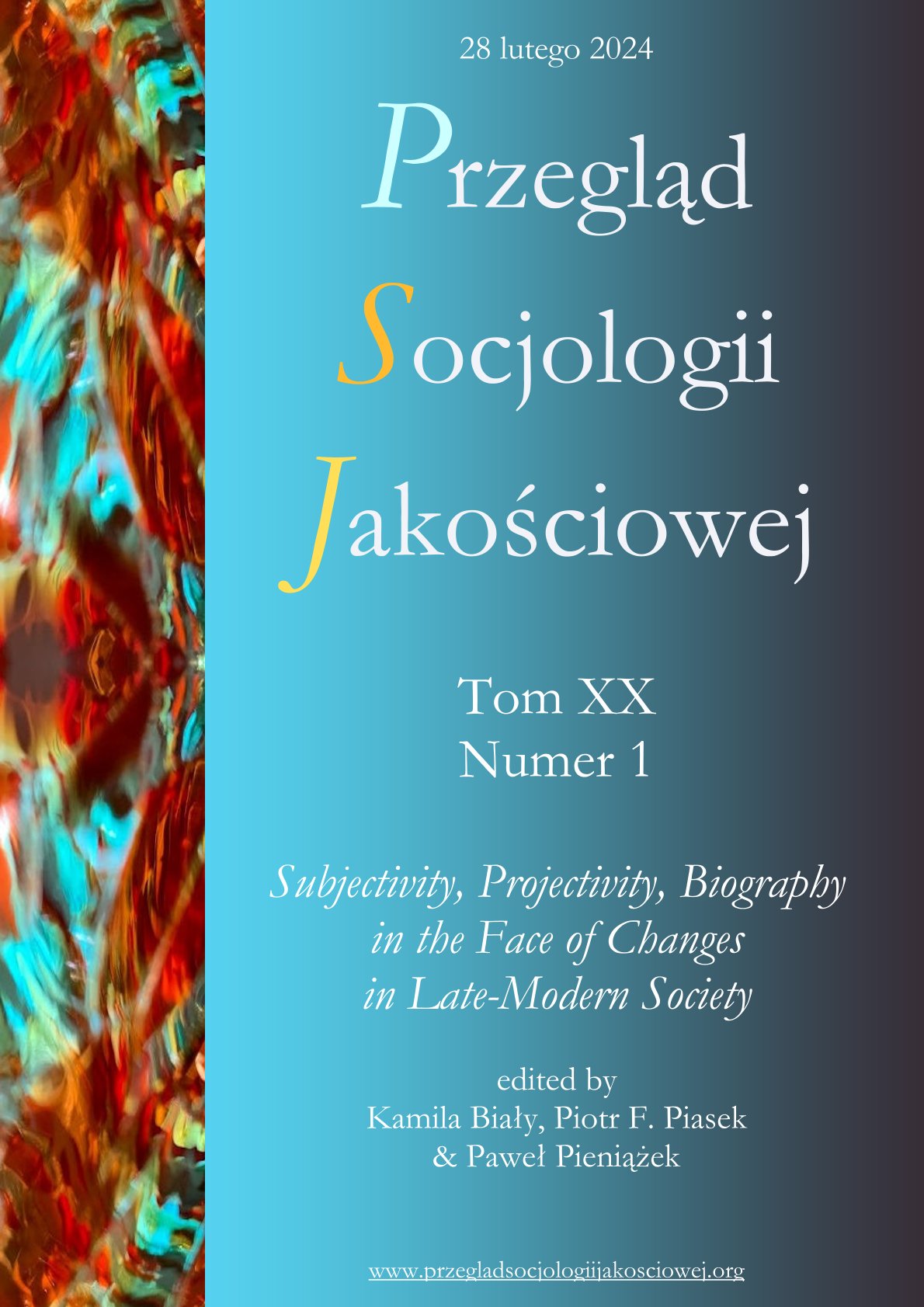On Social Emergence: A Non-Dichotomous Approach to Qualitative Tool Design
DOI:
https://doi.org/10.18778/1733-8069.20.1.03Keywords:
reproduction, emergence, inflections, biographical narrative interview, interview about the presentAbstract
The narrative biographical interview is a research tool that has been successfully used to study the reproductions of the overall constellations of social life that occur within an individual life. The entire methodological proposal as well as the issue of reproduction are based on a dichotomous epistemology. In the presented article, we analyse this issue of reproduction as it appears in Fritz Schütze’s work. Next, we describe a proposal for an alternative narrative interview – interview about the present based on a non-dichotomous epistemology. In our opinion, this epistemological perspective addresses the issue of reproduction in a completely different way. And, more importantly it introduces in the field of sociology an issue of emergence. To illustrate this non-dichotomous logics, we are using the material from one of the interviews from the research data collection.
Downloads
References
Biały Kamila, Piasek Piotr F. (2022), Towards Non-Dichotomous Sociology: A Phenomenologically Inspired Epistemological Analysis, “Avant”, vol. 13(2), https://doi.org/10.26913/avant.2202214
Google Scholar
Francesetti Gianni (2015), From individual symptoms to psychopathological fields. Towards a field perspective on clinical suffering, “British Gestalt Journal”, vol. 24(1), pp. 5–19.
Google Scholar
Francesetti Gianni, Roubal Jan (2020), Field Theory in Contemporary Gestalt Therapy, Part 1: Modulating the Therapist’s Presence in Clinical Practice, “Gestalt Review”, vol. 24, no. 2, pp. 113–136.
Google Scholar
Meillassoux Quentin (2007), Potentiality and Virtuality, “Collapse”, vol. II, pp. 55–81.
Google Scholar
Philippson Peter (2022), The “Active Principle” in Gestalt Therapy and Other Essays, Manchester: Peter Philippson.
Google Scholar
Perls Frederic, Hefferline Ralph, Goodman Paul (1951), Gestalt Therapy: Excitement and Growth in the Human Personality, London: Profile Books.
Google Scholar
Robine Jean-Marie (2013), Anxiety Within the Situation: Disturbances of Gestalt Construction, [in:] Gianni Francesetti, Michela Gecele, Jan Roubal (eds.), Gestalt Therapy In Clinical Practice – From Psychopathology To The Aesthetics Of Contact, Gestalt Therapy Book Series, Milano: FrancoAngeli, pp. 479–493.
Google Scholar
Schütze Fritz (2016), Biography Analysis on the Empirical Base of Autobiographical Narratives: How to Analyse Autobiographical Narrative Interviews, [in:] W. Fiedler, H.-H. Krüger (eds.), Sozialwissenschaftliche Prozessanalyse: Grundlagen der qualitativen Sozialforschung, Opladen–Berlin–Toronto: Verlag Barbara Budrich, pp. 75–116, https://doi.org/10.2307/j.ctvdf09cn.7
Google Scholar
Spagnuolo Lobb Margherita (2017), From losses of ego functions to the dance steps between psychotherapist and client. Phenomenology and aesthetics of contact in the psychotherapeutic field, “British Gestalt Journal”, vol. 26(1), pp. 28–37.
Google Scholar
Waldenfels Bernhard (2011), Phenomenology of the Alien. Basic Concepts, Evanston: Northwestern University Press.
Google Scholar
Zinker Joseph (1977), Creative Process in Gestalt Therapy, New York: Vintage.
Google Scholar
Published
Versions
- 2024-03-14 (2)
- 2024-02-28 (1)
How to Cite
Issue
Section
License

This work is licensed under a Creative Commons Attribution-NonCommercial-NoDerivatives 4.0 International License.
Funding data
-
Narodowe Centrum Nauki
Grant numbers UMO2017/27/B/HS1/00462














